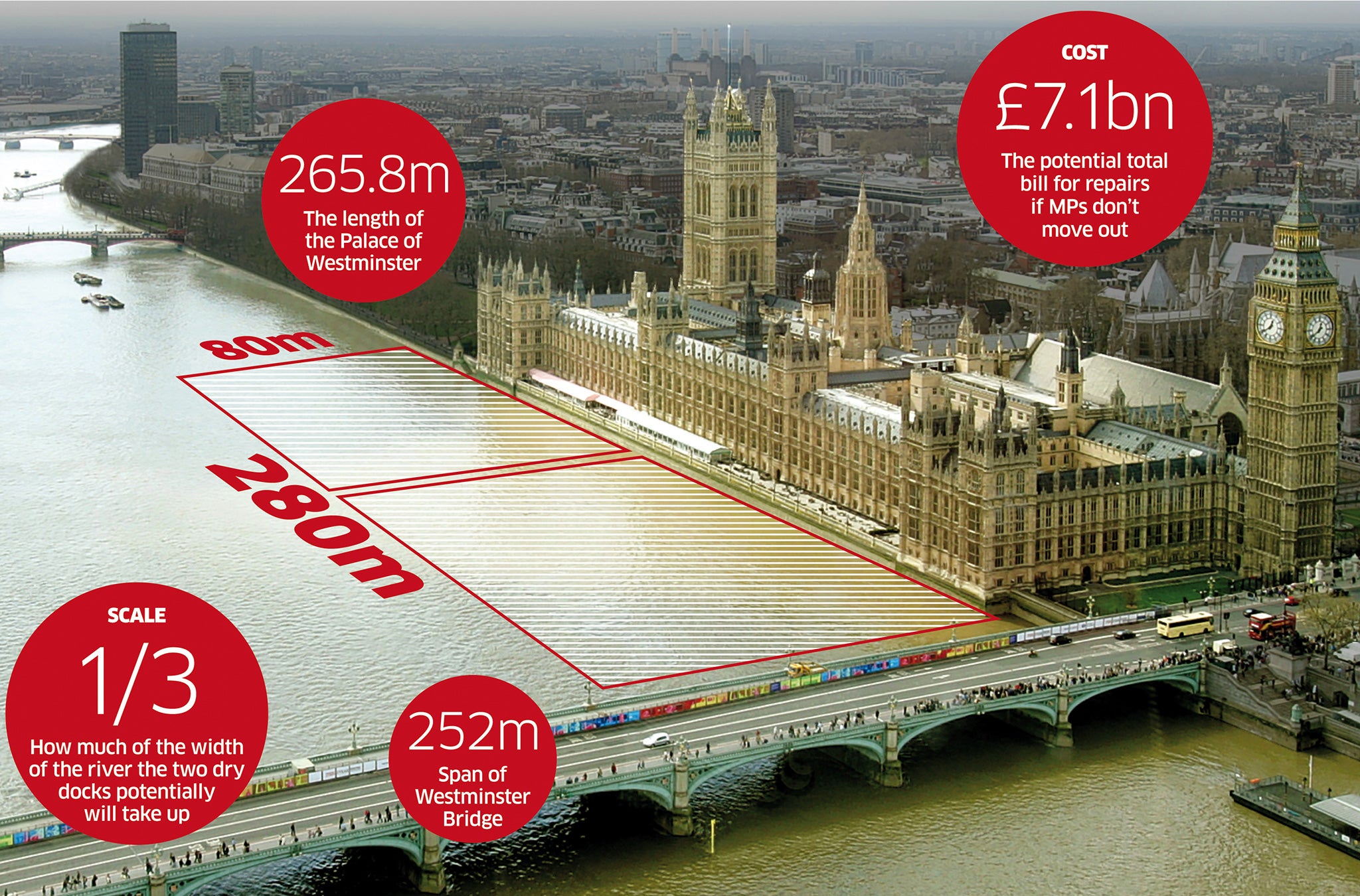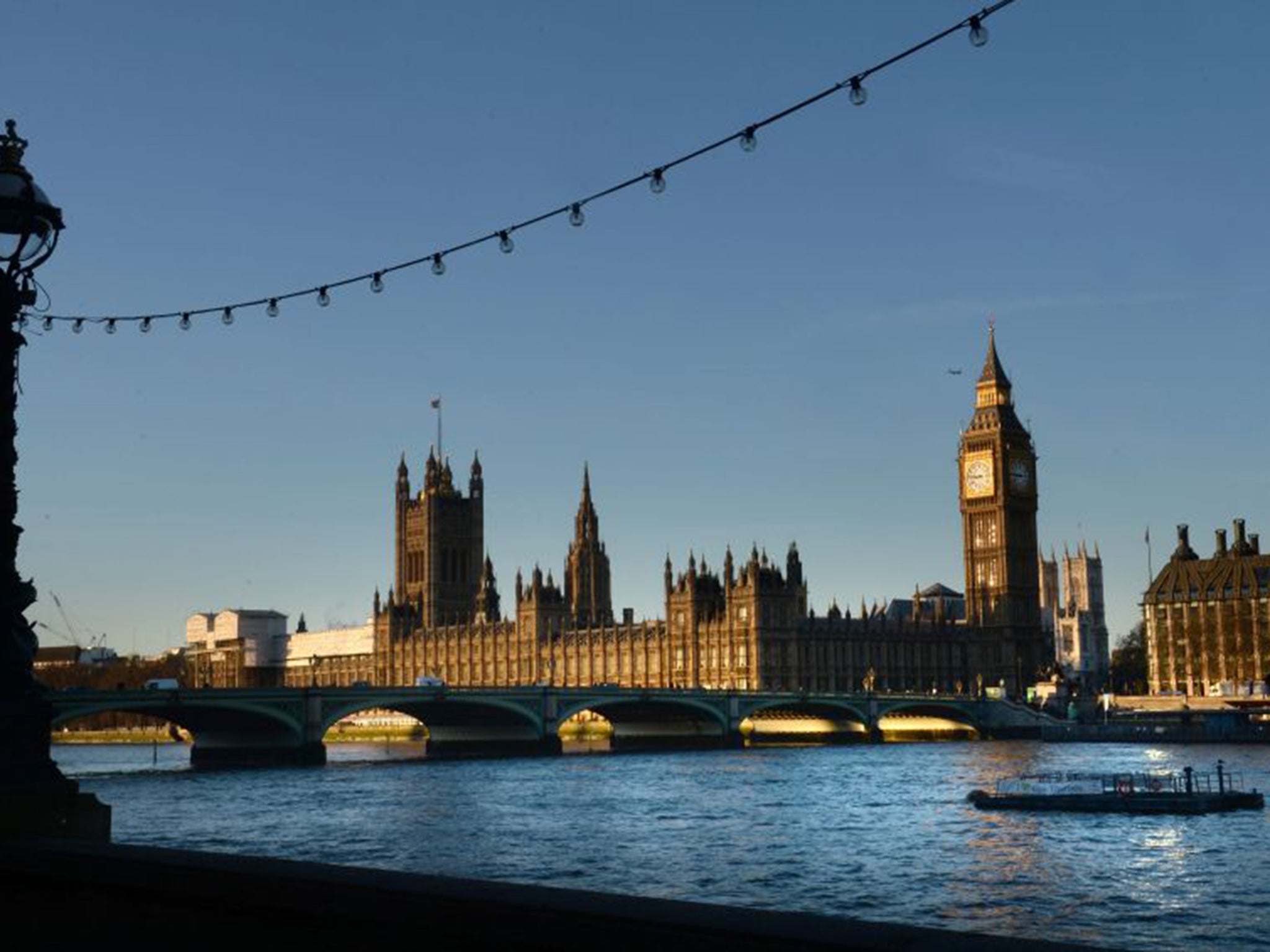Parliament refurbishment: Part of Thames could be closed as Westminster undergoes vital repairs
The multibillion pound project may require river to be used as a supply route

Part of the River Thames could be closed off when the multibillion pound refurbishment of the Palace of Westminster gets under way around 2020, The Independent on Sunday has learned.
Engineers and architects who are considering bidding for the job of saving Parliament have told The IoS that they will probably need to build dry docks by the terrace where, at this time of year, MPs and peers enjoy glasses of wine and pints of beer in the sun. These docks would accommodate two boats: one taking decades’ old equipment and rubble out of Parliament, the other bringing in replacement stonework, air conditioning units, bronze window frames, and generators.
One engineering executive warned that the dry docks would block “one-third, possibly even half” the width of the Westminster section of the Thames, potentially disturbing boat commuter services and river tours. Using the river, though, would make sure that Whitehall, Trafalgar Square and Parliament Square do not suffer years of gridlock with huge lorries going to and from Parliament.

“We would be looking to use the Thames as the main artery to get materials in and out of the palace,” said the source, who conceded that security would have to be significantly tightened on the palace’s river side. London 2012 organisers used barges on the River Lea to transport the sand, stone, concrete and gravel needed to build the Olympic Park in Stratford. This was considered more efficient than trying to negotiate London’s notoriously jammed roads.
Last month, a Deloitte-led team produced a report detailing the repairs the palace needs if it is to continue functioning as the nation’s parliament. The building is riddled with asbestos, rodents, and moths. The report’s most well-publicised findings were that it would cost more than £7bn and take 32 years to complete if politicians did not temporarily move out, against £3.5bn and six years if they did.

A joint committee of MPs and peers will decide which is the best option to take next year, but engineers, architects and construction companies that are planning to bid for the contract are worried the report might not have identified all of the palace’s flaws.
The report made limited reference to subsidence, and these firms are convinced there could be major problems with the ancient building’s foundations. It is understood the report team was not asked to undertake a thorough assessment of the foundations and that the team picked to oversee repairs will have to conduct a separate due diligence analysis.
Any unidentified issues will hike the cost and length of the restoration. “The report almost raises more questions than it answers,” said a construction industry source.
The supporting technical volumes illustrate the dangers caused by engineers being forced to work around politicians should they refuse to move to a less glamorous location, almost certainly the nearby Queen Elizabeth II Conference Centre. For example, there is a greater than 75 per cent chance that there would be fires, potentially costing £120m and causing a delay of two years.
The supporting evidence also warns that politicians would suffer “increased levels of noise disruption” and other “nuisance factors”, such as the loss of parking spaces.
Last week, shadow Business Secretary Chuka Umunna repeated his call to turn the palace into a museum and move MPs to a more modern building. Other MPs would like Parliament to move around the country while repairs are made. At present, neither the Commons nor the Lords can seat all their members.
Join our commenting forum
Join thought-provoking conversations, follow other Independent readers and see their replies
Comments
Bookmark popover
Removed from bookmarks